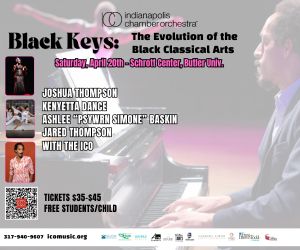Humans have understood for a long time that one effective way to remember important information is by putting it to a rhythm or making it rhyme. Think of the alphabet, which uses both of those techniques, or any number of songs that list all 50 states.
Dustin Ecker, a fourth grade teacher at Grassy Creek Elementary in the Metropolitan School District of Warren Township, decided a decade ago his classes could benefit from that approach.
He used Flocabulary, a program that produces educational hip hop songs for K-12 students. Back then, Ecker had the program on a CD-ROM.
“I just think music is a universal language that resonates with everyone,” he said. “The kids’ ability and the adults’ ability to pick up on lyrics within minutes — why not put what they need to learn to lyrics as well?”
But his students are using it for more than just learning facts. It’s a chance to show classmates, along with students around the country, the kind of creativity it takes to put together a song — and even be recognized nationally.
Terrany Moncrief took it further than anyone. Everyone wrote a song about a historical figure for Flocabulary’s first Black History Month competition in February, and Moncrief was a national top-10 finalist.
Moncrief, now in fifth grade, wrote her song about Marley Dias, a young African American feminist who created the #1000BlackGirlBooks campaign. Every song had to include facts about the person the student chose to highlight, and Moncrief said she was inspired by Dias because she advocates for “people like me.”
Lyanna Buck, one of Moncrief’s classmates, said she got emotional “after I saw how happy she was” when Moncrief received that recognition.
The mnemonic device worked, by the way. Quizzed on some details about Dias eight months after the competition, Moncrief was able to walk through the song she wrote and slowly recall facts she researched.
Music makes it easier to remember things because of a process called “chunking,” which is when you take separate pieces of information — someone’s date of birth and where they went to school, for example — and group them together. Chunking doesn’t have to come by way of music, but having a rhythm and melody is a good way to link that information.
Every student created a music video to go with his or her rap. Ecker has a playlist of the music videos on his YouTube page.
“It was fun,” said Sherman Marlin, who wrote his song about George Crum, inventor of the potato chip. “We all sang, and it helped us memorize.”
National honors or not, writing and performing a song can go a long way in helping young students get ready for the world of presentations and reports.
“It kind of helps you to express yourself because learning the raps and rapping the raps together helps you be not shy,” said Jarren Holman, who wrote his song about Salva Dut, one of thousands of “Lost Boys of Sudan” who fled the country during civil war. “It kind of helps you come out of your egg shell.”
Contact staff writer Tyler Fenwick at 317-762-7853. Follow him on Twitter @Ty_Fenwick.







